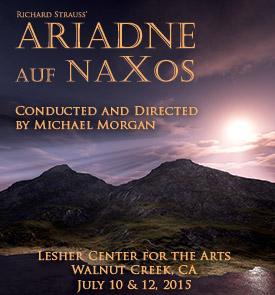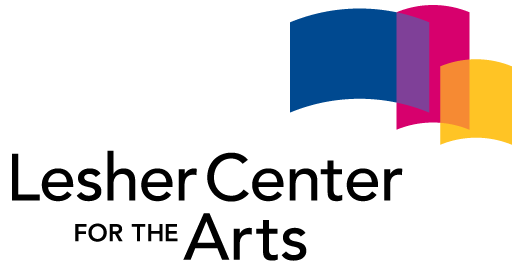Ariadne auf Naxos

Open Tuesday – Sunday
Closed Monday*
Open for Calls
Tuesday – Sunday: Noon – 6:00pm
Friday – Saturday: Noon – 7:30pm
(925) 943-7469
Open for Walk Up
Tuesday – Thursday: 11:00am – 6:00pm
Friday – Saturday: Noon – 7:30pm
Sunday: Noon – 6:00pm
1601 Civic Drive
Walnut Creek, CA 94596
*In addition to the hours noted, the Ticket Office is also open one hour prior and thirty minutes after curtain for ticketed performances, including performances on Mondays.
This "opera within an opera" features both lighthearted comedy and heroic grand opera, as two different performing troupes compete for the attention of a wealthy patron.
Libretto by Hugo von Hofmannsthal
Sung in English and German,
with English supertitles
English translation by Kelley Rourke
Conducted by Michael Morgan
Directed by Michael Morgan
Catherine Martine, the mezzo-saprano who sang the role recently at Glimmerglass will be replacing Shirin Eskandani.
Prologue
In the house of a rich man, preparations are in progress for the performance of a new opera seria, “Ariadne auf Naxos.” The major-domo enters to inform the music master that immediately after the opera a comedy act will be performed, followed by a fireworks display in the garden. The outraged music master replies that the composer, his young pupil, will never tolerate that, but the major-domo is unimpressed by his objections and leaves. When the composer appears, hoping for a last-minute rehearsal, a disdainful servant tells him that the musicians are still playing dinner music. Suddenly the tenor rushes from his dressing room, arguing with the wigmaker. The prima donna furiously comments on the presence of the comedy troupe and their leading lady, Zerbinetta. In the middle of the confusion, the major-domo returns with an announcement: in order for the fireworks to begin on time, the opera and the comedy are to be performed simultaneously.
General consternation soon gives way to practical reactions. The dancing master suggests cutting the opera’s score. The music master persuades the despairing composer to do so, while the two lead singers independently urge him to abridge the other’s part. Meanwhile, Zerbinetta gives her troupe a briefing on the opera’s plot. Ariadne, they are told, has been abandoned by her lover Theseus on the island of Naxos, where she now waits for death. Zerbinetta, however, claims that all Ariadne really needs is a new lover. When the composer vehemently disagrees, Zerbinetta begins to flirt with him. Suddenly the young man finds new hope. Filled with love and enthusiasm for his work, he passionately declares music the greatest of all the arts (“Musik ist eine heilige Kunst”). But when he catches sight of the comedians, ready to go on stage, he realizes with horror what he has agreed to. He blames the music master for the artistic debacle and runs off.

